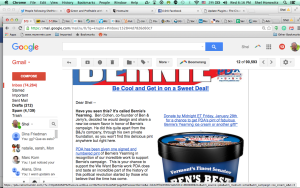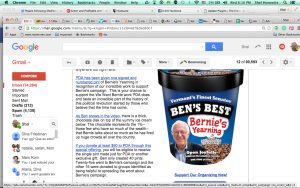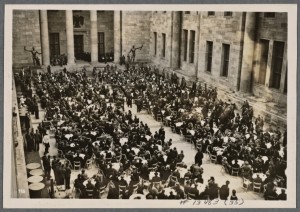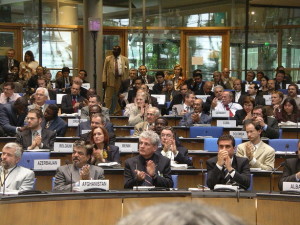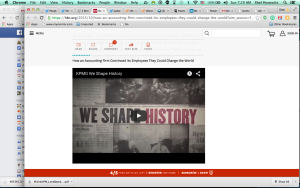Muhammad Ali vs. Donald Trump
Donald Trump and the late Muhammad Ali had at least three things in common: personal wealth, a love of bragging and a willingness to speak their mind even if others were offended. But there’s a big difference: Ali actually had something to brag about. He really was the greatest at what he did, racking up an amazing 55 victories over 61 fights in his career, and going undefeated in his first 30 bouts.

He was also a man of deep principle, foregoing his career for three years after refusing to fight in Vietnam.
This is what he said about that choice:
Why should they ask me to put on a uniform and go 10,000 miles from home and drop bombs and bullets on Brown people in Vietnam while so-called Negro people in Louisville are treated like dogs and denied simple human rights? No I’m not going 10,000 miles from home to help murder and burn another poor nation simply to continue the domination of white slave masters of the darker people the world over. This is the day when such evils must come to an end. I have been warned that to take such a stand would cost me millions of dollars. But I have said it once and I will say it again. The real enemy of my people is here. I will not disgrace my religion, my people or myself by becoming a tool to enslave those who are fighting for their own justice, freedom and equality. If I thought the war was going to bring freedom and equality to 22 million of my people they wouldn’t have to draft me, I’d join tomorrow. I have nothing to lose by standing up for my beliefs. So I’ll go to jail, so what? We’ve been in jail for 400 years.
Agree or disagree with him , you knew where he stood.
Ali was also a humanitarian and philanthropist, using his fortune—a fortune amassed not through inherited wealth and speculative business ventures, but by coming up out of poverty and putting himself in the ring to be slugged again and again by some of the strongest people in the world—for social good.
By contrast, Trump brags about screwing people over, is very quick to unleash insults on others, and yet is very thin-skinned when anyone criticizes him. He even revoked the Washington Post’s media credentials to cover the Trump campaign because he didn’t like the things he said about them.
Let’s listen to Trump in his own words:
“The beauty of me is that I’m very rich.” –Donald Trump
Of course, it helps that he inherited a fortune from his father, a large-scale NYC landlord whose racist policies were so bad that Woody Guthrie (his tenant, briefly) wrote scathing songs about him. Trump’s own record includes lots of failure—including four bankruptcies. It’s hard to imagine him getting rich if he hadn’t had the springboard of his father’s wealth. And he brags about using bankruptcy as a tool to screw the public to further his personal fortune. This quote is on the same 2011 ABC news report on the bankruptcies:
I’ve used the laws of this country to pare debt. … We’ll have the company. We’ll throw it into a chapter. We’ll negotiate with the banks. We’ll make a fantastic deal. You know, it’s like on ‘The Apprentice.’ It’s not personal. It’s just business.
Two more very telling quotes from The Donald:
“If you can’t get rich dealing with politicians, there’s something wrong with you.”
Has he reformed? No. Just look at the recent flurry of news stories quoting everyone from the conservative National Review to the New York State Attorney General calling his Trump University “a scam.”
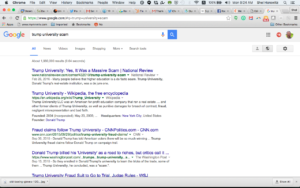
This is the continuation of a long history of unethical business dealings, as this story in US News and World Report notes.
As it happens, I’ve heard both Muhammad Ali and Donald Trump speak in person—Ali at an Aretha Franklin concert in Harlem, in 1971, and Trump delivering the keynote for a conference where I was also speaking, in 2004. Ali’s speech left me feeling empowered. Trump’s left me feeling I’d been slimed by an exhibitionist in a public place.
This bullying, thin-skinned, name-calling racist and sexist who brags about how he gets rich on the backs of others has no grasp of the issues, and apparently no ethics. He doesn’t belong in the White House.


